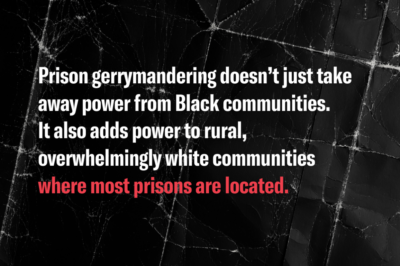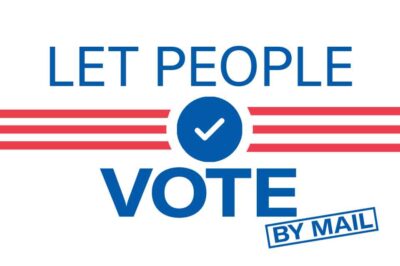NARF AND ACLU Ask Federal Court To Stop Disenfranchisement Of Alaska Natives Who Need Language Assistance
Government Continues To Violate Voting Rights Act, Groups Charge
FOR IMMEDIATE RELEASE
CONTACT: (212) 549-2666; media@aclu.org
ANCHORAGE — On behalf of four Alaska Natives and four tribal governments, the Native American Rights Fund (NARF) and the American Civil Liberties Union filed a motion in federal court today ordering state and local elections officials to provide effective oral language assistance and voting materials to citizens who speak Yup’ik, the primary language of a majority of voters in the Bethel region of Alaska. The motion comes in a lawsuit filed in 2007 charging state and local elections officials with ongoing violations of the federal Voting Rights Act.
“The state of Alaska and city of Bethel continue to violate the Voting Rights Act by blocking Alaska Natives from participating in the democratic process,” said NARF attorney Natalie Landreth, who is lead co-counsel in the case. “Election officials expect Yup’ik voters to understand translations which are incomprehensible, inaccurate, confusing, and cause them to vote the wrong way. Under federal law, state and local elections officials must provide oral language assistance in Yup’ik and ballots and other voting materials translated into Yup’ik – an obligation with which they have never complied.”
In the motion filed today in federal district court in Anchorage, plaintiffs Anna Nick of Akiachak, David O. David of Kwigillingok, Billy McCann and Arthur Nelson of Bethel, and the native villages of Kasigluk, Kwigillingok, Tuluksak, and Tuntutuliak asked the court to order state and local election officials to comply with the voter and language assistance provisions of the Voting Rights Act before the August primary elections and to appoint federal observers to oversee future elections in the Bethel area through the end of 2012. Specifically, NARF and the ACLU are seeking to ensure that people who need assistance to vote receive it from someone of their own choosing, and that election officials provide bilingual staff to help voters at the polls and translate ballots and other election materials and information into Yup’ik.
With the exception of two incomplete and poorly translated radio ads aired in 2006, no election information has been publicized in Yup’ik. All information is in English only. Bilingual translators have been absent from over one-third of polling places, and poll workers are trained less than 10 percent of the time. Even when Yup’ik translators are in polling places, many of their translations are incomplete and ineffective. For example, a 2002 statewide natural gas ballot question used the Yup’ik word for bodily function.
“This case has uncovered the systematic disenfranchisement of Yup’ik speaking voters in Bethel. Election officials have failed to ensure that Yup’ik speaking voters in this area are able to understand a ballot and cast their vote – as required by the Constitution and the Voting Rights Act,” said Jason Brandeis, a staff attorney at the ACLU of Alaska. “The lack of adequate voting assistance, qualified translators, and meaningful outreach from the state or local officials to inform voters of their rights represent clear violations of the law. We are confident the court will provide these voters with the necessary and constitutionally mandated tools they need to participate in the most fundamental act of citizenship.”
“The high illiteracy rates of Yup’ik voters are a result of the state’s segregated public schooling system that the voters grew up with. As a result, more than one in five non-English speaking Yup’iks cannot read and write today,” said James Tucker, an attorney with the ACLU’s Washington Legislative Office. “The state and city view compliance with the Voting Rights Act as optional, something that gets in their way of running an election instead of one of their core responsibilities. Federal law requires language assistance for Yup’ik voters for every election, not merely when it is convenient for election officials.”
Alaska is one of just five states that is covered in its entirety by the language assistance provisions of the Voting Rights Act. Those provisions, sections 4(f)(4) and 203, apply to areas that meet certain threshold requirements for numbers of citizens with limited English proficiency. Section 208 has nationwide applicability and gives “any voter who requires assistance to vote by reason of blindness, disability, or inability to read or write” a right to receive “assistance by a person of the voter’s choice.” The temporary provisions of the Voting Rights Act, including sections 4(f)(4) and 203, were reauthorized by Congress in 2006 for an additional 25 years.
Defendants in the lawsuit include Lt. Governor Sean Parnell, Division of Elections Director Gail Fenumiai, Regional Elections Supervisors Becka Baker and Michelle Speegle, and Bethel Municipal Clerk Lori Strickler.
Attorneys for the Alaska Natives are Landreth of NARF, Brandeis of the ACLU of Alaska, Neil Bradley of the national ACLU Voting Rights Project, and Tucker of the ACLU’s national Legislative Office in Washington, D.C.
Today’s motion for a preliminary injunction is online at:
www.aclu.org/votingrights/gen/35163lgl20080502.html
More information about the ACLU’s work on voting rights is available at: www.aclu.org/voting-rights
Stay Informed
Every month, you'll receive regular roundups of the most important civil rights and civil liberties developments. Remember: a well-informed citizenry is the best defense against tyranny.



